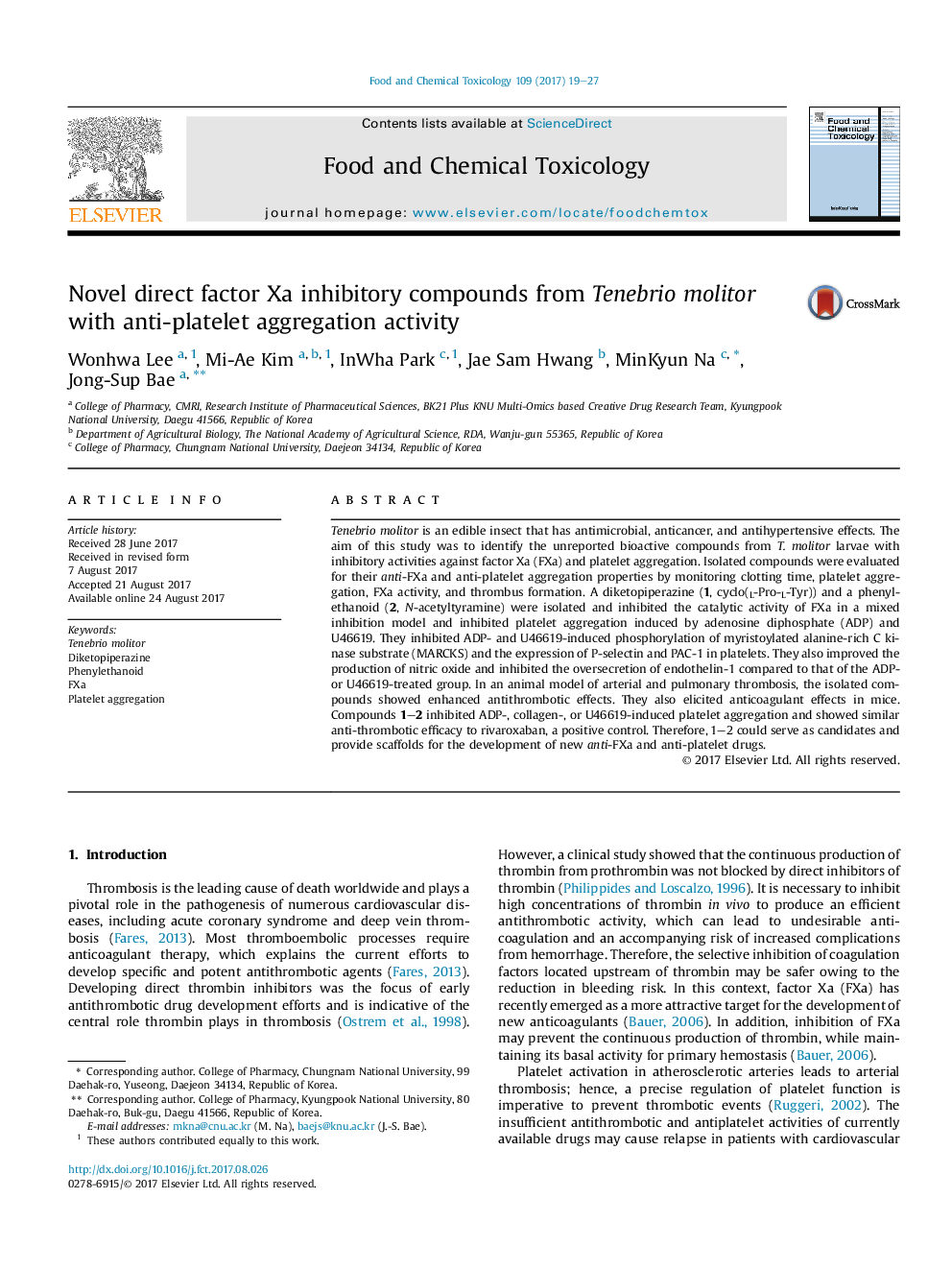| Article ID | Journal | Published Year | Pages | File Type |
|---|---|---|---|---|
| 5559951 | Food and Chemical Toxicology | 2017 | 9 Pages |
â¢Small molecules 1-3 from T. molitor larvae were isolated and they prolonged coagulation time.â¢Compounds 1-3 inhibited the activities and productions of FXa.â¢Compounds 1-3 inhibited the platelet aggregation.â¢Compounds 1-3 showed enhanced antithrombotic effects in vivo.
Tenebrio molitor is an edible insect that has antimicrobial, anticancer, and antihypertensive effects. The aim of this study was to identify the unreported bioactive compounds from T. molitor larvae with inhibitory activities against factor Xa (FXa) and platelet aggregation. Isolated compounds were evaluated for their anti-FXa and anti-platelet aggregation properties by monitoring clotting time, platelet aggregation, FXa activity, and thrombus formation. A diketopiperazine (1, cyclo(L-Pro-L-Tyr)) and a phenylethanoid (2, N-acetyltyramine) were isolated and inhibited the catalytic activity of FXa in a mixed inhibition model and inhibited platelet aggregation induced by adenosine diphosphate (ADP) and U46619. They inhibited ADP- and U46619-induced phosphorylation of myristoylated alanine-rich C kinase substrate (MARCKS) and the expression of P-selectin and PAC-1 in platelets. They also improved the production of nitric oxide and inhibited the oversecretion of endothelin-1 compared to that of the ADP- or U46619-treated group. In an animal model of arterial and pulmonary thrombosis, the isolated compounds showed enhanced antithrombotic effects. They also elicited anticoagulant effects in mice. Compounds 1-2 inhibited ADP-, collagen-, or U46619-induced platelet aggregation and showed similar anti-thrombotic efficacy to rivaroxaban, a positive control. Therefore, 1-2 could serve as candidates and provide scaffolds for the development of new anti-FXa and anti-platelet drugs.
